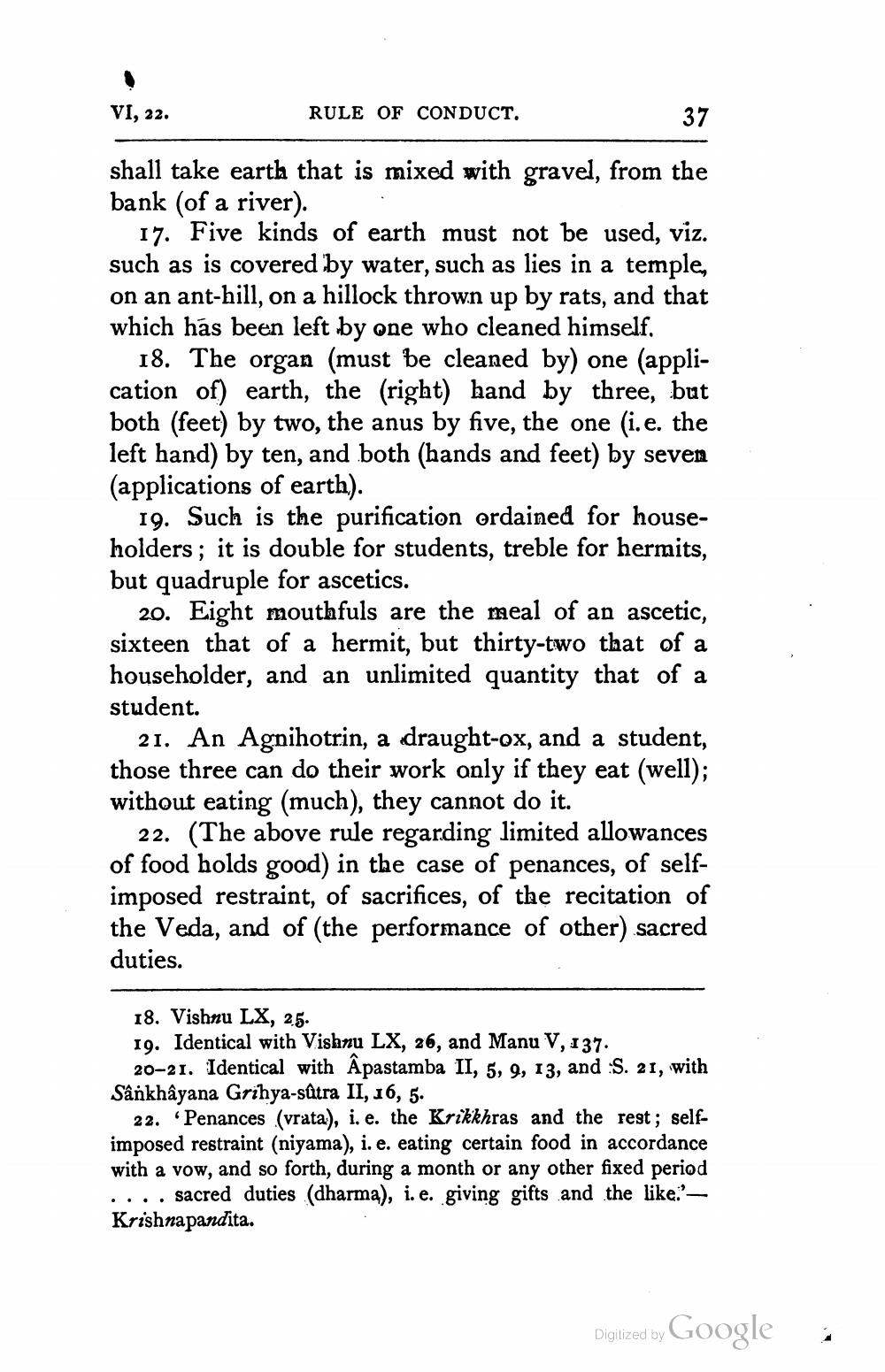________________
VI, 22.
RULE OF CONDUCT.
37
shall take eartla that is mixed with gravel, from the bank (of a river).
17. Five kinds of earth must not be used, viz. such as is covered by water, such as lies in a temple, on an ant-hill, on a hillock thrown up by rats, and that which has been left by one who cleaned himself,
18. The organ (must be cleaned by) one (application of) earth, the (right) hand by three, but both (feet) by two, the anus by five, the one (i.e. the left hand) by ten, and both (hands and feet) by seven (applications of earth).
19. Such is the purification ordained for householders; it is double for students, treble for hermits, but quadruple for ascetics.
20. Eight mouthfuls are the meal of an ascetic, sixteen that of a hermit, but thirty-two that of a householder, and an unlimited quantity that of a student.
21. An Agnihotrin, a draught-ox, and a student, those three can do their work only if they eat (well); without eating (much), they cannot do it.
22. (The above rule regarding limited allowances of food holds good) in the case of penances, of selfimposed restraint, of sacrifices, of the recitation of the Veda, and of (the performance of other) sacred duties.
18. Vishnu LX, 25. 19. Identical with Vishnu LX, 26, and Manu V, 137.
20–21. Identical with Âpastamba II, 5, 9, 13, and :S. 21, with Sânkhâyana Grihya-sätra II, 16, 5.
22. Penances (vrata), i.e. the Krikkhras and the rest; selfimposed restraint (niyama), i. e. eating certain food in accordance with a vow, and so forth, during a month or any other fixed period .... sacred duties (dharma), i.e. giving gifts and the like.'Krishnapandita.
Digiized by Google
Digitized by
i




